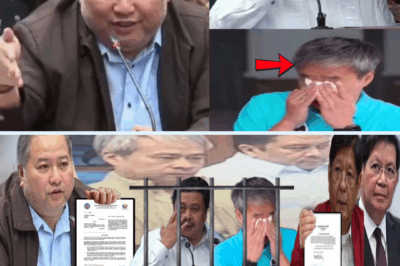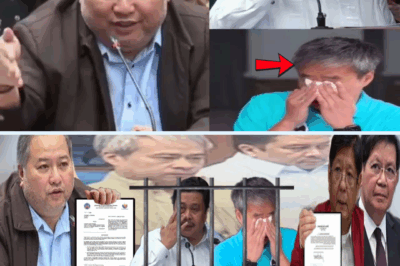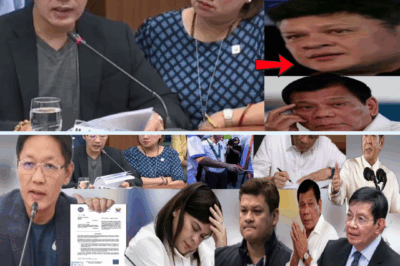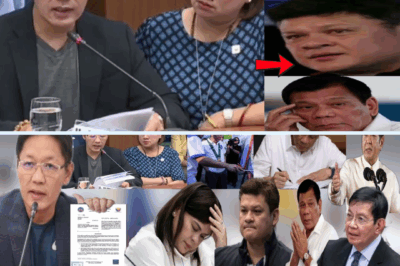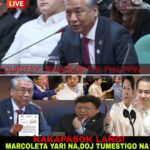Bretman Rock Ignites a Storm: The Fiery Rant Against “Nepo Babies” and Their Ugly Fashion Choices
The Philippines has seen its fair share of scandals—political dynasties, corruption, and the endless gap between the privileged few and the struggling majority. Yet, every so often, one voice rises above the noise, slicing through the excuses and double-talk with brutal honesty. This week, that voice belonged to none other than Bretman Rock.
On September 3, 2025, the Filipino-American beauty influencer and social media superstar unleashed an Instagram Story that instantly shook both local and global audiences. Known for his fearless humor and unapologetic candor, Bretman aimed his fury at a very specific target: the notorious “nepo babies” of the Philippines.
A Multilingual Takedown
The rant was vintage Bretman—delivered with fire, laced with profanity, and sprinkled with humor. Switching seamlessly between English, Tagalog, and Ilocano, he made his point clear:
“I would be mad too if I was funding these motherf*cking nepo babies’ life and they’re buying ugly things. I would be mad, trust.”
The choice of languages was deliberate. For Filipinos at home, it was raw and relatable. For fans abroad, it was authentic and unfiltered. By refusing to stick to one tongue, Bretman gave the rant a universal punch that transcended borders—part comedy, part truth bomb, and part cultural clapback.
Though he never dropped names, everyone knew who he meant. His timing couldn’t have been sharper, coinciding with weeks of public fury aimed at the children of powerful figures flaunting obscene wealth online.
Who Exactly Are These “Nepo Babies”?
Globally, the phrase “nepo baby” has become shorthand for privilege—Hollywood starlets landing roles thanks to famous parents, or music heirs climbing charts on the back of family names. But in the Philippines, the term takes on a much sharper edge. Here, it conjures images of political dynasties, shady contracts, and wealth that feels suspiciously tied to taxpayers’ pockets.
The most recent wave of outrage has centered on a few recognizable names:
Claudine Co, daughter of Christopher Co, linked to Hi-Tone Construction and Development Corporation.
Jammy Cruz, son of Noel Cruz, manager of Sto. Cristo Construction and Trading Inc.
Verniece and Vern Enciso, daughters of former Bureau of Customs executive Verne Enciso.
Gela Alonte, daughter of Biñan Mayor Angelo “Gel” Alonte and niece of Representative Marlyn “Len” Alonte Naguiat.
For weeks, their social media feeds have been filled with envy-inducing snapshots—luxury European getaways, closets of couture, handbags that cost more than houses. To the public, these weren’t harmless flexes; they were brazen displays of privilege in a nation still battered by inflation, corruption scandals, and devastating floods.
Why Bretman’s Words Hit Different
Bretman Rock isn’t just another celebrity mouthing off. He represents something bigger. Born in Cagayan and raised in Hawaii, he grew up without political power or generational wealth. His success—millions of followers, brand deals, magazine covers—was built not on nepotism, but on sheer talent, creativity, and relentless work.
So when Bretman calls out “nepo babies,” it doesn’t sound like bitterness. It sounds like truth. His career stands as living proof that you can succeed without a famous last name or taxpayer-funded privileges. That contrast gave his rant more weight than any politician’s speech could ever have.
It’s also not the first time Bretman has mixed entertainment with activism. He’s long used his platform to challenge beauty standards, uplift LGBTQ+ voices, and remind the world of Filipino pride. This latest moment, however, may be his most pointed political statement yet.
The Rotten Backdrop: Corruption and Flooded Streets
To understand the fury behind Bretman’s rant, you need to look at the backdrop. Billions of pesos have been poured into government projects—particularly flood-control programs meant to protect communities. Yet, every typhoon season, countless Filipinos find themselves wading through waist-deep waters, wondering where all that money went.
Rumors swirl of padded contracts, political kickbacks, and private enrichment. Against this backdrop, photos of political heirs sipping champagne in Paris or showing off handbags worth millions don’t just look tone-deaf. They look incriminating.
By mocking their “ugly fashion choices,” Bretman delivered a double blow—exposing not just the misuse of wealth, but the arrogance of flaunting it in bad taste. His rant went beyond fashion; it was a cultural indictment.
How the Public Responded
Within hours, social media lit up. Hashtags trended. Memes spread like wildfire. Reaction videos flooded TikTok.
Supporters praised Bretman as fearless, finally voicing the anger ordinary Filipinos have felt for years. “He said what needed to be said,” wrote one user.
Critics accused him of hiding behind vagueness, arguing that without names, his rant was all heat and no accountability.
Neutral observers noted that whether he named names or not, the message was already clear—and it was hitting nerves at the highest levels.
Meanwhile, politicians remained conspicuously silent, though whispers suggest discomfort within families uncomfortably close to the spotlight.
Beyond the Philippines: A Global Mic Check
What makes Bretman’s rant extraordinary is its reach. With millions of fans across the globe, his words didn’t just echo in Manila or Cagayan. They reverberated in Los Angeles, Dubai, and London.
For overseas Filipinos—many of whom send hard-earned remittances home each month—the outrage hit differently. Watching elites squander questionable wealth on designer bags while their own families struggle is more than frustrating; it’s insulting. Bretman, himself part of the diaspora, gave them a voice.
The Questions That Linger
Now that the dust is settling, bigger questions remain:
Should the children of public figures be held accountable for the source of their wealth?
Is flaunting privilege online harmless bragging—or a symptom of systemic corruption?
Can social media outrage translate into real political accountability?
These aren’t easy questions, and Bretman himself may not have the answers. But by daring to ask—by dragging “nepo babies” into the spotlight—he’s forced a national reckoning that politicians alone couldn’t ignite.
Conclusion: A Rant That Became a Rallying Cry
In the end, Bretman Rock did what he always does best: he entertained, he shocked, and he spoke his truth. Yet this time, his truth struck a nerve that went far beyond fashion or fame.
By calling out “nepo babies” for their “ugly fashion choices,” Bretman distilled an entire country’s frustration with corruption, inequality, and privilege into one unforgettable line. It was messy. It was funny. It was furious. And it was exactly what millions needed to hear.
Whether it sparks lasting change is uncertain. But one thing is undeniable: the next time a privileged heir posts a photo with a million-peso handbag, Filipinos won’t just roll their eyes. They’ll remember Bretman Rock’s words—and perhaps, they’ll demand more than just better fashion. They’ll demand accountability.
News
Alcantara’s shocking testimony shakes Villanueva and Estrada—dark secrets surface, power trembles, and the nation demands the hidden truth.
Breaking News: Villanueva and Estrada Under Fire as Henry Alcantara Testifies In a stunning twist that has sent shockwaves across…
Villanueva and Estrada shaken—Alcantara’s explosive testimony reveals hidden secrets, sparking fear, betrayal, and a nation demanding shocking answers.
Breaking News: Villanueva and Estrada Under Fire as Henry Alcantara Testifies In a stunning twist that has sent shockwaves across…
Villanueva, Estrada cornered—Alcantara’s shocking testimony drops bombshell secrets, power crumbles, and the nation braces for explosive truth.
Breaking News: Villanueva and Estrada Under Fire as Henry Alcantara Testifies In a stunning twist that has sent shockwaves across…
Discaya’s bombshell rocks the Dutertes—secrets explode, power crumbles, and the nation holds its breath for the truth.
Breaking News: Duterte Family Faces Political Firestorm as Discaya Testifies In a political drama that has gripped the Philippines like…
Duterte empire on the brink—Discaya breaks silence, explosive secrets revealed, power shaken, and the nation waits breathlessly.
Breaking News: Duterte Family Faces Political Firestorm as Discaya Testifies In a political drama that has gripped the Philippines like…
Discaya’s shocking testimony ignites firestorm—Duterte dynasty shaken, secrets exposed, and a nation demands answers to chilling allegations.
Breaking News: Duterte Family Faces Political Firestorm as Discaya Testifies In a political drama that has gripped the Philippines like…
End of content
No more pages to load

